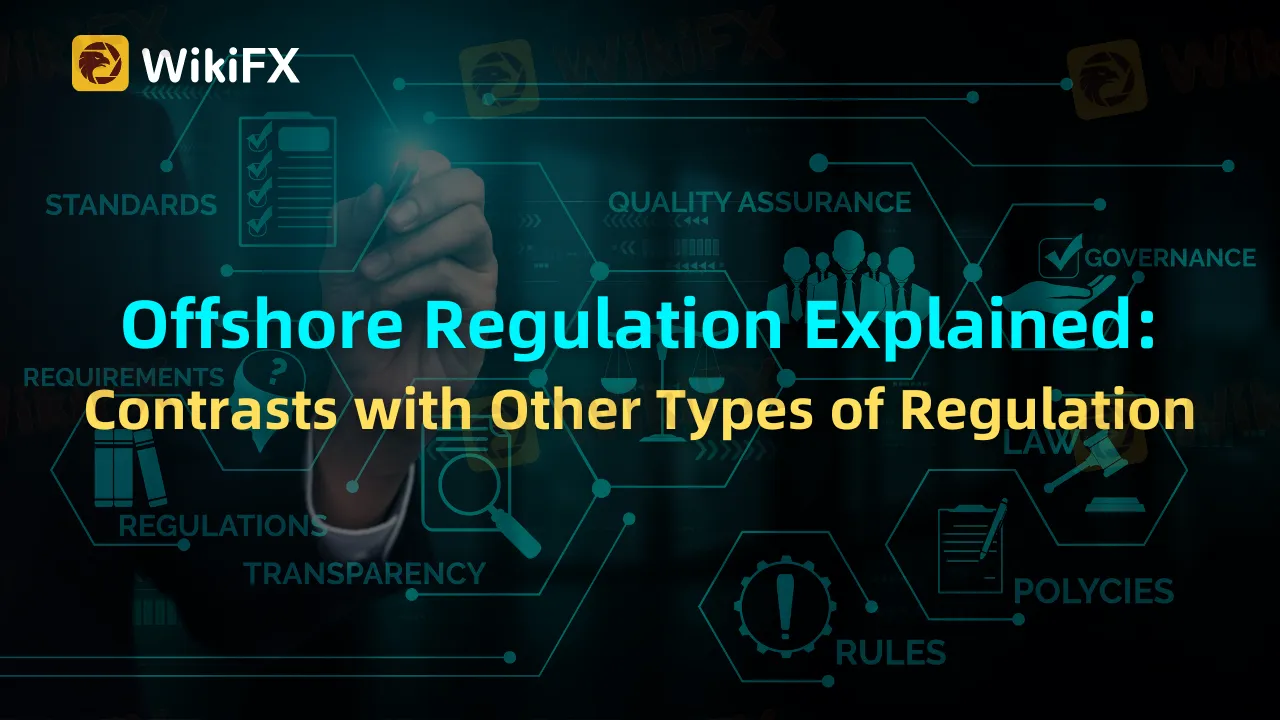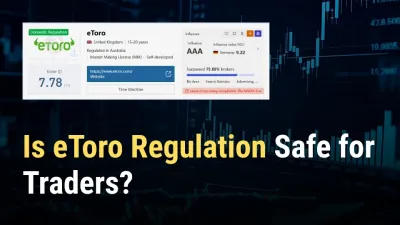Abstract:Offshore regulation refers to the rules governing businesses in tax havens. Although providing tax advantages, confidentiality, and financial flexibility, offshore jurisdictions also face criticism for facilitating tax avoidance and potentially aiding illicit activities. While some offshore jurisdictions uphold strict regulatory systems, global calls for greater transparency and harmonization of regulatory standards are influencing these regulatory landscapes.

Offshore regulation is a term often used in the context of financial services and company formation. It refers to the rules, legislation, and procedures that govern corporate activities in tax havens and other offshore countries. Offshore jurisdictions are nations or territories in which some taxes are charged at a reduced rate or are not assessed at all, drawing firms and people from all over the globe for tax planning and savings.
However, the appeal of offshore jurisdictions is not limited to tax advantages alone. Confidentiality, ease of doing business, asset protection, and financial flexibility also play a significant role in attracting entities to these jurisdictions.
The term 'offshore' itself means located or based outside one's national boundaries. Offshore refers to locales outside of the nation of domicile or incorporation in the context of business and finance. The Cayman Islands, British Virgin Islands, Panama, Bermuda, and the Isle of Man are all popular offshore jurisdictions.
Offshore regulators make certain that enterprises and financial institutions operating inside their jurisdictions follow local laws and regulations. Corporate governance requirements, financial reporting criteria, anti-money laundering (AML) processes, and counter-terrorist financing (CFT) measures are often included in these policies. Offshore regulators may grant licenses, monitor activity, conduct investigations, and levy fines or penalties for noncompliance.
Contrary to popular belief, many offshore countries have strict regulatory systems that are, in some situations, stricter than those in onshore jurisdictions. The regulatory emphasis is often on preventing illegal operations including money laundering, tax evasion, and terrorism funding. However, the degree of regulation varies substantially from offshore jurisdiction to offshore jurisdiction, with some being accused of offering a sanctuary for criminal operations owing to low regulation and insufficient enforcement.
Onshore regulation, on the other hand, often has bigger, more complete regulatory and supervisory frameworks, sometimes involving numerous authorities and a greater range of regulated activities. Onshore jurisdictions, which refer to a company's home country or where its major operations occur, often have stricter standards of transparency and corporate governance. They also typically engage more actively in international regulatory cooperation.

Onshore Regulatory Bodies:
Federal Reserve (USA): The central bank of the United States, which is responsible for the nation's monetary policy.
Securities and Exchange Commission (USA): Regulates the securities industry, including stock exchanges, broker-dealers, investment advisors, mutual funds, and public utility holding companies.
Financial Conduct Authority (UK): Regulates financial firms providing services to consumers and maintains the integrity of the UKs financial markets.
Prudential Regulation Authority (UK): A part of the Bank of England, it is responsible for the prudential regulation and supervision of banks, building societies, credit unions, insurers, and major investment firms.
Securities and Futures Commission (Hong Kong): An independent statutory body set up to regulate the securities and futures markets in Hong Kong.
Reserve Bank of India (India): The country's central banking institution, responsible for the issue and supply of the Indian rupee and the regulation of the money market.
Offshore Regulatory Bodies:
Cayman Islands Monetary Authority (CIMA): Regulates and supervises the financial services industry in the Cayman Islands.
Bermuda Monetary Authority (BMA): Responsible for the regulation and inspection of financial institutions in Bermuda, including banks, trust companies, investment businesses, and insurance companies.
Monetary Authority of Singapore (Singapore): The central bank of Singapore, also performs various regulatory functions related to financial services.
Guernsey Financial Services Commission (Guernsey): Regulates the finance sector in the Bailiwick of Guernsey, covering banking, fiduciary, insurance, and investment.
Jersey Financial Services Commission (Jersey): The financial services regulator for Jersey, Channel Islands, responsible for the regulation, supervision, and development of the financial services industry.
Dubai Financial Services Authority (Dubai): An independent regulator of financial and ancillary services conducted in or from the Dubai International Financial Centre (DIFC).
However, there is a growing global trend towards harmonization of regulatory standards. International organizations such as the Organisation for Economic Co-operation and Development (OECD) and the Financial Action Task Force (FATF) are leading initiatives to promote greater transparency and information exchange among jurisdictions, as well as to establish minimum standards in areas such as AML and CFT.
The topic of tax avoidance versus tax evasion is a fundamental point of contention in offshore legislation. While tax evasion is unlawful and includes deceptive tax avoidance methods, tax avoidance is the legitimate use of the tax system to lower the amount of tax owed. While it is lawful for firms and individuals to utilize offshore countries for tax avoidance, the ethical implications of such acts have sparked intense arguments and demands for change.
Another important topic is corporate social responsibility. With increasing attention on environmental, social, and governance (ESG) factors in business, companies are facing more pressure to align their tax strategies with their corporate social responsibility goals. This is leading some companies to reconsider their use of offshore jurisdictions, given the potential reputational risks.
In conclusion, offshore regulation refers to the rules governing businesses in offshore jurisdictions. While it shares some similarities with onshore regulation, there are notable differences in areas like tax rates, privacy, ease of doing business, and the extent and focus of regulatory oversight. However, global trends towards harmonization and increasing attention to tax ethics and ESG factors are influencing the offshore regulatory landscape.
While offshore regulation often presents opportunities for businesses in terms of tax optimization and ease of operation, the implications extend beyond the companies themselves. Offshore jurisdictions play a significant role in the global economy. Understanding this role, along with the related benefits and risks, is crucial to grasping the broader implications of offshore regulation.
Globalization has led to an increasingly interconnected world, where businesses, individuals, and even governments take advantage of offshore jurisdictions to manage their financial affairs. By offering low tax rates and simple regulatory environments, offshore jurisdictions attract foreign investment and international business. This provides a significant source of income for these jurisdictions, boosting their local economies. Some offshore jurisdictions have built entire economies around offering such services, with finance and related professional services accounting for a substantial proportion of their GDP.

However, the benefits of offshore regulation can also bring about potential pitfalls and risks. By facilitating tax avoidance, offshore jurisdictions can inadvertently contribute to income inequality and economic disparity. While legal, moving funds offshore can deprive onshore jurisdictions of tax revenue needed for public services and infrastructure. This has been a topic of heated debate, particularly in the context of multinational corporations shifting profits offshore to lower their tax bills.
Additionally, despite the rigorous regulatory regimes in place in many offshore jurisdictions, some entities exploit these systems for illicit purposes. Money laundering, terrorist financing, and other financial crimes are potential risks. Offshore regulators need to balance the economic benefits of attracting foreign business with the necessity of preventing illegal activities. This can be a challenging task, given the confidential nature of many offshore transactions and the difficulty of tracking financial flows across borders.
Regulatory cooperation and information exchange between jurisdictions, both offshore and onshore, is an essential tools for managing these risks. International bodies like the OECD and FATF play crucial roles in facilitating this cooperation and setting global standards. Regulatory technology (RegTech) is also becoming increasingly important, offering tools that can help regulators monitor transactions, detect suspicious activity, and ensure compliance with regulations.
In recent years, social pressure and public opinion have also started to impact the offshore regulatory environment. Revelations like the Panama Papers and the Paradise Papers, which showed the use of offshore jurisdictions by high-profile people and corporations, have prompted demands for more openness and reform. As a result, several offshore countries are taking efforts to enhance their image, such as implementing more strict AML/CFT safeguards and engaging in international tax transparency projects.
Offshore regulation will continue to be a significant part of the global financial system in the future. Balancing the advantages of offshore companies with the need for regulatory control, ethical tax methods, and transparency will be a significant issue. These difficulties will need a mix of local regulatory measures, international collaboration, and continual discourse about the role and responsibilities of offshore jurisdictions in the global economy.
Download and install the WikiFX App on your smartphone to stay updated on the latest news.
Download the App here: https://social1.onelink.me/QgET/px2b7i8n











